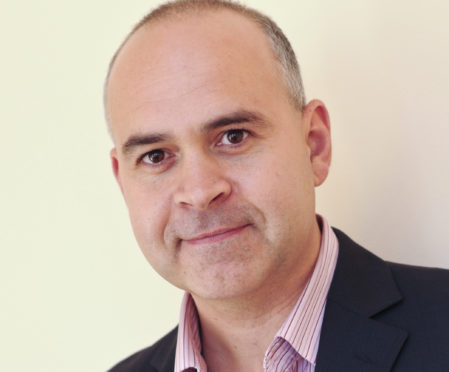Have you ever looked at the person on the desk next to you and wondered why they appear to be moving through the ranks of promotion seemingly effortlessly whilst you have been stuck in the same job for years?
Or have you marveled at how your colleague wrapped their head around a brand-new project quickly when you are still trying to digest the initial brief for it?
Chances are that the biggest difference between you and those around you is your mind and how you approach not knowing, being in an unfamiliar situation and your belief in your ability to rise to the challenge.
This concept, known as having a growth mindset as opposed to a fixed mindset, has been widely discussed by psychologists but is only now becoming more popular.
Professor Ewan Gillon: How having a purpose in life goes beyond the right job
At the basis of it lies the assumption that beliefs we hold about our own abilities have a major impact on how successful we can become in life. Some of those are conscious beliefs, others may be held subconsciously, but both are equally powerful.
An example of a fixed mindset would be a child being told they are smart by their parents and therefore believing that their natural cleverness will help them succeed and prevent them from failing.
So far, this sounds like the parents are building their child’s confidence. What they are not doing, however, is teaching the child how to deal with failures, which will inevitably happen at some point.
This is where the growth mindset differs substantially.
Returning to our example of the growing child, a child who is being told that they can achieve pretty much anything as long as they work hard for it is more likely to accept that success takes effort and that there may be setbacks along the road.
The difference may seem subtle, but its impact on our life can be huge.
A growth mindset allows us to deal with change better and adapt to what life throws at us.
Language has a major role to play in developing a growth mindset. For instance, someone with a fixed mindset might face a challenge by saying: ‘I can’t do this.’ On the other hand, the growth mindset approach would be to say: ‘I can’t do this yet, but I can work to improve at it.’
So how do you develop a growth mindset? Allowing growth starts with accepting that you are not perfect, neither your personality nor your work.
Whilst being hard, this does make room for growth.
When new challenges seem daunting, try to look at them as opportunities. A challenging work project will come with plenty of opportunities for professional growth.
Listen to criticism – after all, it is meant to improve things – but stop relying on external approval.
Learning to trust yourself and your instincts is a key part of developing a growth mindset.
Another crucial aspect of changing your mindset is language. How often have you said, both out loud and in your mind, ‘I’m no good at maths’.
Still, you manage to budget your salary every month, understand and pay bills and save up for a holiday, meaning you have a decent grasp of basic maths.
Rather than telling yourself you’re no good at something, try ‘If I spend a bit of time and effort on it, I could improve my grasp of basic maths to understand it better.’
Lastly, changing your mindset won’t happen overnight. It’s a process that will take time, and it’s important to try to enjoy it as you go through it.
As with many things in life, it’s the journey that makes the difference rather than the destination.










